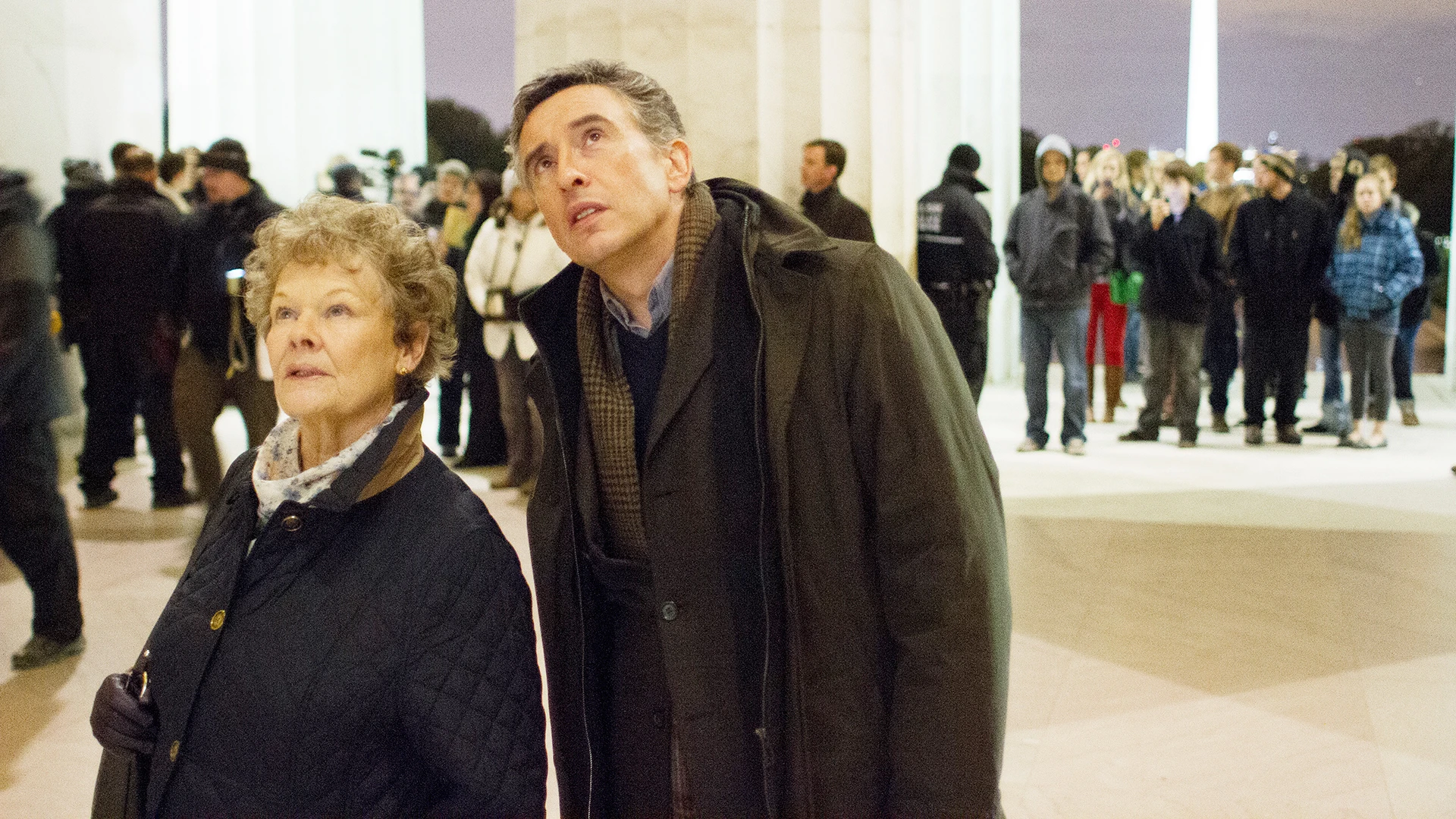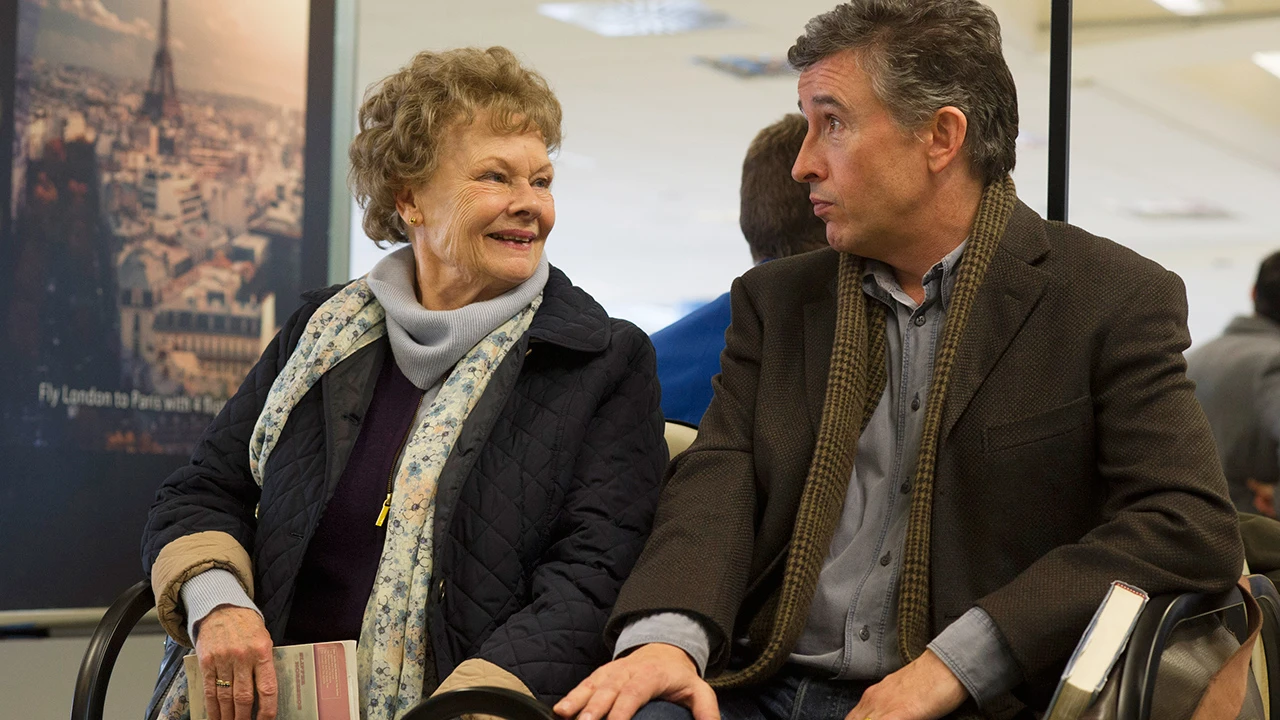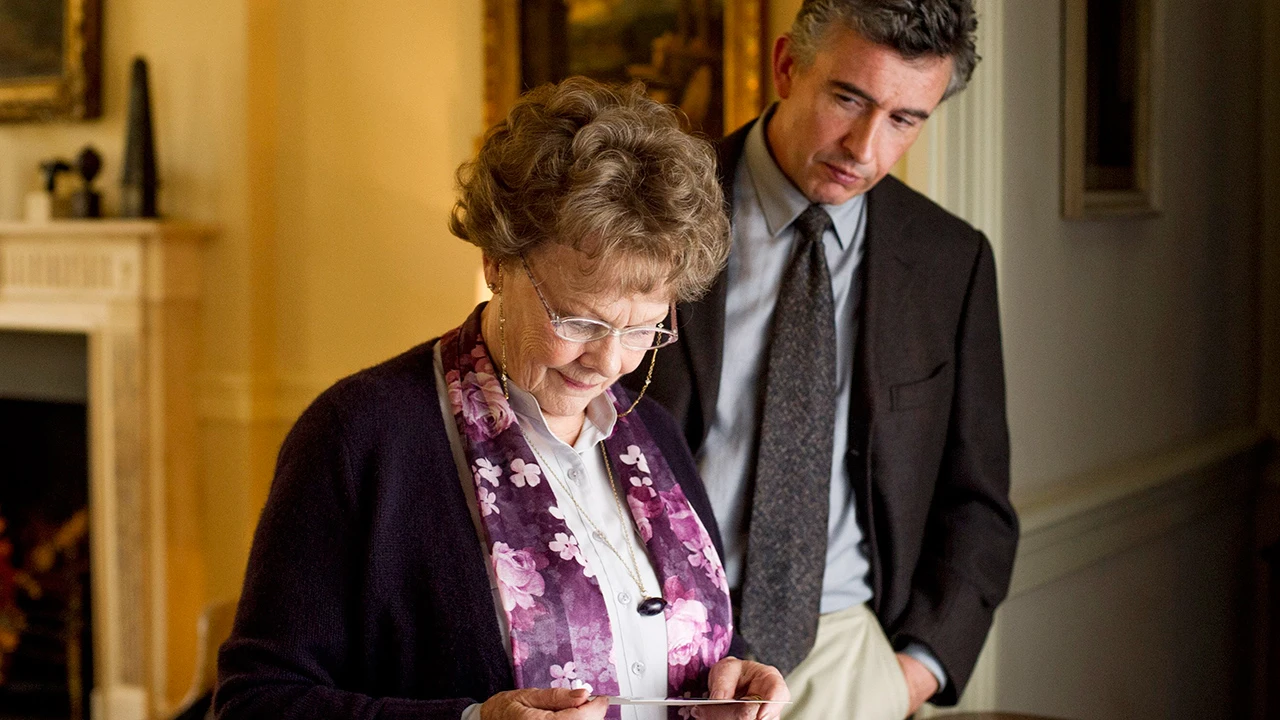Steve Coogan may not be a household name in America, but in England, he’s one of the biggest names in comedy. For over a decade, he has brought to life the fictional, intensely flawed radio host Alan Partridge. Coogan developed the Partridge character first for a radio show, then for a television series and ultimately for a book and a film that will be released in the United States next year. While Coogan has appeared in a number of comedies, including several collaborations with Michael Winterbottom, his latest project, Philomena, which he co-wrote, produced and stars in, is a departure.
The film, which costars Dame Judi Dench, tells the true story of Martin Sixsmith (Coogan), a former British journalist and recently fired aide to Prime Minister Tony Blair who is searching for his next act when he meets the daughter of Philomena Lee (Dench). Sixsmith learns that Philomena had a baby boy when she was young and unmarried. The boy was taken away from her by the nuns at a convent who then sold the child for adoption to an American couple. Sixsmith and Philomena go on a journey to America to find out what happened to her lost son.
The film, which is now in theaters, has drawn rave reviews. For many Americans, this film will serve as an introduction to Coogan. The surprise for British audiences will be that he is playing a dramatic role–a significant departure from his historic parts as a comedian. On the occasion of the film’s release we sat down with Coogan for a conversation about how to create a great character.
Decide Big Things. Let the Character Guide you from There
Coogan says it’s important to decide a few key things about who the character is from the start. In the case of Philomena, Coogan and his co-writer Jeff Pope made clear from the beginning that Sixsmith was to be portrayed as cynical, a character decision that drove the whole rest of the film and character process. Throughout the film the unassuming character played by Dench slowly but surely erodes some of Sixsmith’s cynicism. After grounding the character with an important trait like that, it’s off to the races for Coogan and Pope, using the character to guide them, “We have a rough idea of the concept and then we just starting writing and we find our way.”

Backstory Matters
In developing the Alan Partridge character, Coogan and his co-creators talked a lot very early on about what car he drove, what films he liked, and the countless other characteristics that defined him. Many of these traits and attributes were never shown in the TV series. Some were used many years later. But working through this process, Coogan believes, is vital to building a three dimensional character. Says Coogan, “It’s the iceberg principle, you do all that stuff beneath the surface and it gives the whole rest of the character meaning and authenticity.” With Sixsmith they had an advantage because he was based on a real-life character. Even so, Coogan says it’s essential to choose the defining elements of the persona carefully.
Use Writing as Rehearsal
For Coogan, the writing process is also rehearsal. He often acts out the work as he writes, saying things out loud, using his acting abilities to get a sense of what the characters will feel like once they are fleshed out. This allows him to revise the writing to make a better screenplay while also beginning to develop the character from the acting perspective. Coogan believes the words are directions that help define a character. Being able to engage in acting and writing simultaneously makes the character richer on the page and on the screen. Coogan adds, “I’m never in a position to say ‘Who wrote this?’ Because I did! So I can absolutely phrase something in a way that feels natural. It empowers me to sidestep clichés and play to my strengths in terms of dialogue and character.”

Comedy Does Not Equal Drama
Between writing characters for comedy and for drama, the biggest difference according to Coogan is, “In comedy, priority number one is that it has to be funny and if within that funniness you can shed insight on humanity that’s a welcome bonus. You need a certain number of laughs on each page. That’s the brutal reality.” With drama it’s the inverse, he says, arguing that a character’s success hinges on vested interest, various levels of stakes, and their journeys. Another distinction Coogan notes is that while in comedy as much as half of the character doesn’t exist on the page–gestures, sounds, facial expressions, that make the character funny that cannot be written directly into the script–in drama the character’s strength has to be drawn from the script itself.

Actors Can Write Better Characters
Pulling triple duty as writer, actor and producer on Philomena comes naturally to Coogan–in his work as Alan Partridge he frequently served in all of those roles–and Coogan says wearing those different hats and knowing what they feel like really helps the process of creating a character. While he always writes the character first, being an actor–and in some cases knowing he’ll be acting the part he is writing–compels him to write with acting in mind. As an actor writing a screenplay Coogan says, “You are aware of the nuance. You become aware of how you can make it more efficient and eloquent.” That same position enables Coogan to create shortcuts and leave things out of the script that are filled in more naturally and in a less contrived way when it comes time to act in front of the camera. “I don’t need to worry about that because I’ll know what to do, but we do really need to make sure the other characters know in detail what they are doing.” The roles of writer, actor, and character are not to be conflated without intention. Coogan says in order to remember your focus and goals for the stage of developing the character, it’s important to make a distinction when you are in the writing room “When we’re writing, I’ll never say ‘I do this,’ I’ll always say ‘When Martin does this…’ … I’m the writer, not the character.”
Recognize your brand’s excellence by applying to this year’s Brands That Matter Awards before the early-rate deadline, May 3.
